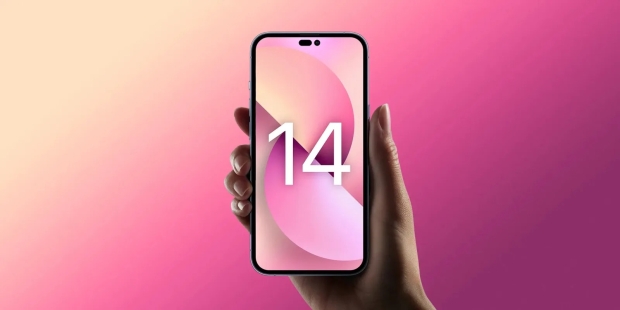Apple is expected to unveil its new iPhone 14 family of smartphones in September, with news that the iPhone 14 launch event will kick off on September 7.
Bloomberg's Mark Gurman is reporting that Apple will announce the new iPhone 14 and iPhone 14 Pro smartphones on September 7, alongside the new Apple Watch Series 8 wearable. Apple is expected to nix the smaller 5.4-inch model iPhone 14, upgrading to a larger standard 6.1-inch display on the regular iPhone 14, and a larger 6.7-inch display on the iPhone 14 Pro.
Inside, we're expecting Apple to use the same A16 chip inside of the higher-end iPhone 14 Pro, while the regular iPhone 14 will use the A15 chip that is inside of the iPhone 13. The higher-end iPhone 14 Pro will also have some big camera upgrades: a new "pill-shaped" hole for the FaceID sensors, and a hole-punch-sized space for the camera.
- Read more: Apple's next-gen A16 SoC in iPhone 14: baked on TSMC N5P process node
- Read more: Apple's next-gen iPhone 15: launches in 2023, loses the notch
On the back of the new iPhone 14 Pro we're expecting a new 48-megapixel wide-angle camera, as well as 12-megapixel ultrawide and telephoto cameras. Apple's new iOS 16 operating system will be running on the new iPhone 14 smartphones, too.
We should expect about a week between the September 7 announcement and the launch of the iPhone 14 smartphones, where Gurman adds that Apple Store employees have been informed that the launch is taking place on September 16.
In the post from Februrary 2022, we reported on news that we should expect Apple to use its current-gen A15 SoC inside of the iPhone 14, while the higher-end flagship iPhone 14 Pro smartphones are expected to feature the 'new' A16 SoC. But, what will be new to give it advantages over the A15? The new A16 SoC will see it having a "slightly better CPU, LPDDR5 RAM and better GPU".
At the time, insider Ming-Chi Kuo said: "A15 is made by TSMC N5P. Because N4 has no advantages vs. N5P, it's reasonable for A16 to stick with the N5P, implying that improvements in performance and power-saving from A16 should be limited. Naming iPhone 14 Pro's chip as A16 is more of a marketing purpose".




